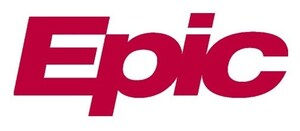
Participating providers are working with Epic to kick off the first stage of the Life Sciences program: study feasibility and clinical trial matchmaking
VERONA, Wis., Sept. 14, 2022 /PRNewswire/ -- Epic announces the release of its Life Sciences program, expanding its work to bring together the disconnected parts of healthcare. The program is built to help providers, pharmaceutical companies, and medical device manufacturers recruit research participants, expand clinical trial access to underrepresented communities, and speed up the development of new therapies.
"The Life Sciences program is designed to create a seamless connection between participant patients, healthcare providers, and research sponsors through the use of a single system," said Alan Hutchison, vice president at Epic. "Unifying clinical research with care delivery and building a direct connection to study sponsors will help accelerate the development of new therapies by making studies more efficient, more accessible, and more effective."
Providers across the world use Epic to conduct more than 100,000 active research studies with 4.7 million patients. While these organizations are leaders in health research, there are opportunities to accelerate the speed of medical advancement by improving how patients, providers, and sponsors interact. Today, many clinical trials use study-specific and disconnected systems that result in duplicative effort and poor communication—inefficiencies that can discourage patients and providers from participating in research.1
The initial focus of the Life Sciences program includes:
- Matching participating providers with clinical trial opportunities suited to the makeup of their patient populations.
- Sending participating providers purpose-built Cosmos searches to help them validate whether a trial is right for them without the need to develop their own queries.
- Making clinical trials accessible to more provider groups by lowering the technical and staffing barriers to study activation.
- Increasing clinical trial efficiency by eliminating duplicative workflows and connecting researchers, care teams, patients, and sponsors through a single system.
- Supporting clinicians with point-of-care insights into when their patients might qualify for a clinical trial and applying predictive models to assist with the timing of therapy administration.
"The first stage of the Life Sciences program, clinical trial matchmaking, is available today and provider organizations in the Epic community are already signing up," said Seth Howard, vice president of research and development at Epic.
"By accurately matching these organizations with clinical trials suited to their patients, researchers will be able to recruit more effectively and help ensure that clinical trials benefit more representative populations," Howard said. "Ultimately, our shared goal is to help patients access life-changing therapies sooner by reducing friction throughout the clinical trial lifecycle."
Provider organizations in the Epic community and life sciences groups that are interested in study feasibility and clinical trial matchmaking can reach out to [email protected] to learn more.
Visit www.epic.com/about.
1 |
"A CRO to pluck: Docs blame contract research organizations for trial troubles, but there's more to it." Med City News. Published October 23, 2018. Accessed August 20, 2022. https://medcitynews.com/2018/10/a-cro-to-pluck-docs-blame-contract-research-organizations-for-trial-troubles-but-theres-more-to-it/ |
SOURCE Epic








Share this article